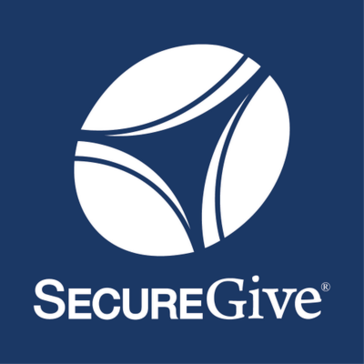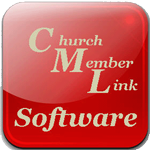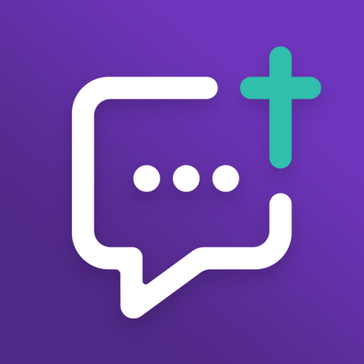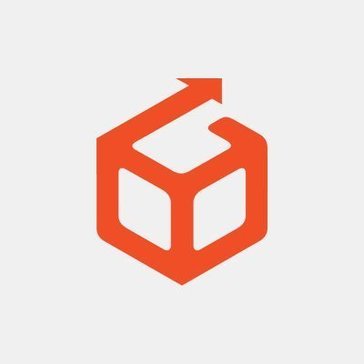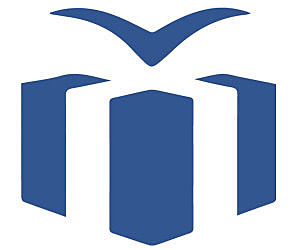Top Other Religious Institutions Softwares
Other Religious Institutions software serves the diverse needs of various religious organizations beyond mainstream congregations. This software allows institutions to streamline operations, manage events, and enhance community engagement. By offering tools for member management, donation tracking, and communication, these platforms help institutions maintain cohesive and organized systems. They o... Read More
14 companies found
SecureGive
Product Description
SecureGive is a convenient and reliable software that focuses on making giving and donations simple for churches and non-profit organizations. With SecureGive, you can streamline the donation process, making it easy for supporters to contribute whether they're attending in-person or donating online. SecureGive is designed with both the organization and its donors in mind. For organizations, it o... Read More
Users
- • No Data
Industries
- • No Data
Market Segment
- • No Data
StreamingChurch.tv
Product Description
StreamingChurch.tv is a web-based platform designed to help churches stream their services live to their communities and beyond. It provides an easy-to-use solution for broadcasting worship services, sermons, and other church events in real-time, ensuring that members who can't attend in person still feel connected to their church family. One of the main features of StreamingChurch.tv is its abil... Read More
Users
- • No Data
Industries
- • No Data
Market Segment
- • No Data
Product Description
Logos software is designed to make managing your church community simple and efficient. Whether you're a pastor, church administrator, or volunteer, our intuitive platform helps you stay organized and focused on what truly matters—your mission and community. At its core, Logos offers a suite of tools tailored for church management. From keeping track of your congregation's contact details to orga... Read More
Users
- • No Data
Industries
- • No Data
Market Segment
- • No Data
Church MemberLink
Product Description
Church MemberLink is a practical and user-friendly software specifically designed for managing church membership and administration. Developed with the needs of churches in mind, it offers a range of features that help streamline tasks such as tracking attendance, managing member information, and organizing church events. One of the standout features of Church MemberLink is its ease of use. Even ... Read More
Users
- • No Data
Industries
- • No Data
Market Segment
- • No Data
Product Description
Called is a software solution designed to help businesses manage and track their phone calls more efficiently. Imagine having all your call details in one place, easily accessible and neatly organized. That's what Called does for you. It provides a user-friendly interface where you can keep track of inbound and outbound calls without the hassle of manual logging or missed information. Whether you... Read More
Users
- • No Data
Industries
- • No Data
Market Segment
- • No Data
Product Description
CareNote is a friendly and intuitive note-taking software specifically designed to cater to the diary-keeping needs of busy professionals and caregivers. The heart of CareNote lies in its simplicity and ease of use, which ensures that anyone from tech enthusiasts to those less familiar with digital tools can effortlessly keep track of important information and daily observations. Users can quickl... Read More
Users
- • No Data
Industries
- • No Data
Market Segment
- • No Data
Church Social
Product Description
Church Social is a web-based management tool designed to help churches streamline their administrative tasks and foster community engagement. Built with church needs in mind, this software offers an intuitive and user-friendly platform that brings together essential church management functions in one place. Administrators can manage member information, track attendance, and record contributions e... Read More
Users
- • No Data
Industries
- • No Data
Market Segment
- • No Data
Ministry Scheduler Pro
Product Description
Ministry Scheduler Pro is designed to simplify the management of church volunteer and ministry schedules. This software offers an easy and efficient way to coordinate, plan, and communicate with your church volunteers, making what can often be a daunting task, much more manageable. With Ministry Scheduler Pro, you can streamline the entire scheduling process. Volunteers can provide their availabi... Read More
Users
- • No Data
Industries
- • No Data
Market Segment
- • No Data
Ministry Grid
Product Description
Ministry Grid is designed to simplify the way churches and ministry leaders train their teams. With easy-to-follow courses and resources, Ministry Grid focuses on making training accessible and manageable for everyone, regardless of their role or experience level within the church. One of the core features of Ministry Grid is its vast library of training modules that cover a range of topics such ... Read More
Users
- • No Data
Industries
- • No Data
Market Segment
- • No Data
GiveCentral Live
Product Description
GiveCentral Live is an intuitive platform designed to streamline online giving and event-based donations for non-profits, religious organizations, and community groups. Our software places a strong emphasis on ease of use, making it simple for organizations to manage live fundraising events, virtual engagement, and donations all from a single platform. With GiveCentral Live, you can host live-str... Read More
Users
- • No Data
Industries
- • No Data
Market Segment
- • No Data
What features should I look for in software for religious institutions?
When examining Other Religious Institutions software, consider several key features that can benefit administrative, community, and service aspects. Ensuring streamlined management and enhancing the overall experience for members and leaders alike is crucial. Below are essential features to consider:
Membership Management
Effective membership management is foundational for any religious institution. Look for software that allows:
- Member Database: Maintain comprehensive records of members, including contact details, involvement, and personal preferences.
- Communication Tools: Efficiently send emails, newsletters, and alerts to members or specific groups within the institution.
- Membership Reporting: Generate reports on attendance, membership numbers, and other key metrics.
Event and Activity Scheduling
Planning and managing events is a critical part of religious life. Consider features such as:
- Calendar Integration: Sync schedules with popular calendar apps, ensuring everyone stays updated on events.
- Event Registration: Allow members to register for events easily through customizable forms.
- Volunteer Management: Coordinate volunteer efforts, schedule shifts, and track volunteer hours effectively.
Financial Management
Handling financial matters efficiently can alleviate administrative burdens. Important features include:
- Donations and Tithing: Secure, straightforward processing of online donations and tithes.
- Accounting Tools: Basic accounting functions for tracking expenses, managing budgets, and generating financial reports.
- Recurring Giving Options: Facilitate regular contributions from members with automated payment options.
Communication and Community Building
The strength of a religious community often hinges on effective communication and engagement. Look for:
- Mobile App Access: Provide members with access to a mobile app for event updates, resources, and communication.
- Social Media Integration: Connect and share information easily across various social media platforms.
- Community Forums: Create online spaces for discussion, prayer requests, and support among members.
Content Management
Managing content and sharing sermons or educational materials effectively is key. Features to consider include:
- Resource Libraries: Upload and organize sermons, educational materials, and multimedia content.
- Streaming Services: Live-stream services and events to reach a broader audience.
- Multilingual Support: Facilitate communication and resources in multiple languages for diverse congregations.
Security and Privacy
Protecting member data and ensuring the privacy of communications and transactions are vital concerns. Consider:
- Data Encryption: Ensure secure transactions and protect sensitive data with robust encryption methods.
- Access Controls: Establish user roles and permissions to safeguard sensitive information.
- Compliance with Regulations: Stay compliant with relevant regulations and standards regarding data protection.
Customization and Scalability
Software must adapt to the specific needs of different institutions. Features to consider include:
- Customizable Interfaces: Allow institutions to tailor the software layout and functionality to meet their specific needs.
- Scalability Options: Expand and adapt the software's capabilities as the institution grows.
- Integration with Other Tools: Seamlessly integrate with existing systems, such as learning management or financial software.
By carefully evaluating these features, religious institutions can select Other Religious Institutions software that best meets their organizational needs and enhances their community’s experience.
How can software improve communication within religious communities?
Streamlined Communication Channels
Other Religious Institutions software can streamline communication by providing a centralized platform. This software can integrate email, messaging, and announcements. This allows for a unified approach to sharing information. Members can easily access updates through this central hub.
Event Management
Managing events is vital for religious communities. The software simplifies event scheduling and communication. Through calendars and reminders, members stay informed about upcoming activities. Automated notifications ensure no event is overlooked. This fosters participation and engagement within the community.
Member Directory
A member directory is a crucial feature of Other Religious Institutions software. It offers an organized list of community members. This makes it easier to find contact information for direct communication. With access to phone numbers and emails, connecting with others becomes hassle-free. It encourages stronger connections within the religious group.
Volunteer Coordination
Volunteering is integral in many religious communities. The software aids in organizing volunteer activities. It manages volunteer roles and shifts, ensuring everyone is informed. Automated alerts and sign-ups streamline the process, promoting active involvement.
Multilingual Support
Religious communities are often diverse linguistically. The software can enhance communication with multilingual support. It allows messages and content to be accessible in various languages. This helps include all members, regardless of language barriers.
Feedback and Surveys
Engaging with community members is crucial for growth. Using Other Religious Institutions software, leaders can gather feedback through surveys. It provides an effective way to gauge member opinions. This offers insights into community needs and preferences, guiding future communication strategies.
Secure Communication
Security is important in communication. The software provides secure channels for sharing sensitive information. Encryption and access controls ensure that messages are protected. This builds trust and confidence within the religious community.
Content Sharing
The software enables easy sharing of content such as sermons, newsletters, and articles. It provides a platform for distributing diverse materials. Members can access resources at their convenience, supporting learning and discussion within the community.
Training and Workshops
For educational purposes, the software supports organizing training sessions and workshops. It can help schedule and communicate about these sessions effectively. Timely reminders and updates ensure participation and skill development.
Real-Time Updates
Timeliness in communication is essential. The software offers real-time updates, keeping members informed instantly. This feature supports transparency and responsiveness. It minimizes misinformation, fostering trust within the community.
Attendance Tracking
Monitoring attendance is streamlined with Other Religious Institutions software. It helps leaders track participation in events and meetings. Automatic records improve efficiency, reducing manual work. This data can be used to adjust communication and engagement strategies.
Prayer Requests
Facilitating prayer requests is a unique aspect of religious communities. The software provides a means to submit and share prayer requests. This feature nurtures spiritual support and communal empathy.
In summary, Other Religious Institutions software fosters improved communication through centralized management of announcements, secure messaging, event coordination, and inclusive multilingual support. It encourages active participation by simplifying feedback mechanisms and volunteer coordination while ensuring the protection of communication channels.
What are the benefits of using software for religious event management?
Streamlined Event Planning
Using Other Religious Institutions software can significantly streamline the event planning process. It offers integrated tools for coordinating multiple aspects of event management, such as scheduling, budgeting, and volunteer coordination. This ensures that every part of the event is planned effectively, supporting religious institutions in organizing seamless gatherings for their community.
Efficient Communication
Effective communication is crucial for the success of any event. Other Religious Institutions software provides platforms for sending updates and announcements to members and volunteers. These systems often include email integrations and alerts, ensuring everyone involved stays informed about the event details. This reduces the chances of miscommunication and ensures timely dissemination of important information.
Improved Registration Processes
Managing event registrations manually can be a daunting task. Other Religious Institutions software simplifies this process by offering online registration forms and payment gateways. These tools not only ease the administrative burden but also provide attendees with a convenient registration experience. Through this, institutions can better track registrants, manage enrollment data, and optimize event attendance.
Resource Management
Another advantage is the efficient management of resources such as venues, equipment, and staffing. The software often includes features that allow for the streamlined allocation and scheduling of these resources. This helps prevent conflicts and overlaps, ensuring that the necessary materials and manpower are in place for a successful event.
Data Collection and Analysis
Other Religious Institutions software can facilitate the collection and analysis of data related to an event. This includes tracking attendance, surveying participant satisfaction, and assessing financial performance. With these insights, religious institutions can analyze the success of their events and make informed decisions for future activities. This data-driven approach helps in improving engagement and optimizing resource allocation.
Enhanced Financial Management
Handling finances for events can be complex. Other Religious Institutions software often includes financial management tools to track expenses, donations, and payments. By consolidating all financial transactions in one place, institutions can maintain transparency and accuracy in their financial reporting. This supports budget management and helps avoid overspending.
Volunteer Engagement
Volunteers play a critical role in religious events. The software aids in the recruitment, training, and management of volunteers. By providing modules for task assignments and scheduling, it ensures that volunteers are engaged and utilized efficiently, enhancing the overall execution of the event.
Improved Member Experience
For members, attending well-organized events enhances their overall experience. Other Religious Institutions software enables personal engagement by collecting information on preferences, accommodating special requests, and ensuring member needs are met. This attention to detail helps in fostering a stronger community bond by making events more inclusive and enjoyable.
Administrative Efficiency
Overall, the use of Other Religious Institutions software reduces the administrative workload involved in organizing events. By automating routine tasks and providing tools for effective management, it saves time and effort, allowing religious leaders and administrators to focus on spiritual guidance and community building. This efficiency is pivotal in ensuring that events run smoothly and are spiritually enriching.
By leveraging Other Religious Institutions software for religious event management, institutions can ensure that every aspect, from planning and execution to follow-up, is handled with precision and care, resulting in successful and impactful events.
How does donation tracking software help religious organizations?
Simplifies Donation Management
Other Religious Institutions software designed for donation tracking plays a crucial role in streamlining the management of donations. It aggregates all donation-related data into a single platform, allowing for easy access and management. This centralized system reduces manual entry, minimizes errors, and saves valuable time. By simplifying the management process, religious organizations can allocate more resources and focus on their core mission.
Enhances Financial Transparency
One of the primary benefits of using Other Religious Institutions software is the enhancement of financial transparency. Religious organizations can utilize these tools to meticulously track all financial transactions, providing detailed records for donors and stakeholders. Accurate and timely reporting builds trust, as donors can see how their contributions are being utilized. This transparency is crucial for maintaining donor confidence and encouraging continued support.
Facilitates Donor Communication
Effective communication with donors is vital for the sustained growth and support of religious organizations. Donation tracking software within the Other Religious Institutions software category allows organizations to segment donors, tailor messages, and automate communication. This personalized approach strengthens donor relationships, enhances engagement, and encourages higher donation retention rates.
Provides Insight through Analytics
Donation tracking tools offer valuable insights through robust analytics. Religious organizations can gain a deeper understanding of donor behavior, trends, and patterns. These insights allow organizations to make data-driven decisions, optimize fundraising strategies, and identify opportunities for growth. Understanding these patterns is essential for adapting to the needs and preferences of donors, ensuring continued support.
Streamlines Tax Reporting
Complying with tax regulations can be a complex task for religious organizations. Other Religious Institutions software introduces features for streamlined tax reporting, automating the generation of necessary documents for both the organization and the donors. This ensures compliance with regulatory requirements and provides donors with accurate records for tax deductions, enhancing organizational credibility.
Increases Donation Security
Ensuring the security of donation data is paramount. Donation tracking software within Other Religious Institutions software employs advanced security measures to protect sensitive donor information and financial data. By securing this information, organizations protect themselves from potential data breaches and maintain donor trust.
Enables Real-Time Tracking
Real-time tracking allows religious organizations to monitor the flow of donations as they are received. This capability enables organizations to respond promptly to donation trends and adjust fundraising efforts accordingly. Real-time visibility ensures that organizations remain agile and can make immediate decisions based on the latest data.
Supports Diverse Donation Methods
With the evolving landscape of donation methods, Other Religious Institutions software supports a variety of donation channels, including online, mobile, and in-person donations. By accommodating diverse payment methods, these tools help expand the reach of fundraising efforts and make contributing convenient for donors.
Facilitates Event Management
Religious organizations often rely on events to raise funds and engage the community. Donation tracking software aids in the management of events by incorporating features for ticket sales, registration, and donation processing. This seamless integration ensures a cohesive approach to event management, optimizing both fundraising and participation.
Can software aid in better community engagement for religious institutions?
Introduction
Other Religious Institutions software plays a crucial role in fostering improved community engagement. Religious institutions, diverse in their practices, require tools that cater to specific needs without compromising their unique spiritual objectives. The use of specialized software helps churches, synagogues, mosques, and other religious organizations streamline operations, promote collaboration, and enhance community bonds.
Enhanced Communication
One of the significant advantages of using Other Religious Institutions software is the enhancement of communication channels. This software provides streamlined messaging systems, enabling leaders and members to share updates, announcements, and event details effectively. Whether it's through email newsletters, text messaging, or app notifications, communication becomes more direct and efficient. This ensures that all community members are informed and involved, promoting a sense of inclusivity.
Facilitated Event Management
These software solutions often incorporate event management features that allow religious institutions to organize and promote gatherings, services, and celebrations with ease. By facilitating online RSVPs, ticket sales, and event promotions, religious organizations can increase participation and engagement. Detailed event analytics provide insights into attendee preferences, fostering improved future planning and execution.
Member Involvement and Volunteer Coordination
Encouraging active participation from members is crucial for any religious community. Other Religious Institutions software often includes tools for tracking volunteer activities and managing tasks related to events or community services. This boosts member involvement by allowing individuals to sign up for volunteer opportunities that match their skills and interests. By better coordinating volunteer efforts, religious institutions can efficiently allocate resources and increase the impact of their community outreach programs.
Streamlined Administrative Tasks
Administrative efficiency is another area where these software solutions excel. They offer functionalities for managing donations, finances, and membership databases, ensuring the smooth operation of the institution. This allows leaders to allocate more time and resources towards fostering community relationships and spiritual growth. With automated financial reporting and database management, religious leaders can focus on developing deeper connections with their congregations.
Platform for Community Building
Another important aspect of Other Religious Institutions software is its role in community building. By offering forums, discussion groups, and social networking features, it provides a virtual space for members to connect, share experiences, and support one another. This helps build a stronger, more engaged community, where members feel valued and involved beyond weekly services or meetings.
Fostering Learning and Development
These software solutions often offer educational resources and tools for religious education and spiritual development. Institutions can offer online classes, workshops, and study groups, accessible through the software. Whether it’s scripture study, leadership training, or skill development, the software allows institutions to engage with their communities in meaningful ways.
In summary, Other Religious Institutions software is fundamental in enhancing community engagement by improving communication, facilitating events, coordinating volunteers, streamlining administration, building community, and fostering learning opportunities. Through these capabilities, religious institutions can build stronger connections and grow their communities in meaningful ways.
What role does software play in religious education and learning?
Enhancing Accessibility and Reach
Other Religious Institutions software serves a vital role in expanding the accessibility of religious education. By leveraging cloud-based platforms, these software solutions enable the distribution of educational content to a global audience. Whether it is for individual learners or religious study groups, learners can access material anytime, overcoming geographical barriers. This broadens the reach of religious teachings and ensures inclusivity, allowing followers from different parts of the world to connect and learn.
Facilitating Interactive Learning
Software designed for Other Religious Institutions turns passive learning into an interactive experience. These platforms often include features such as quizzes, discussion forums, and multimedia content, catering to different learning styles. By incorporating videos, audio lectures, and interactive modules, the software engages learners more effectively than traditional methods. Such interactive elements can deepen understanding and retention of religious texts and principles.
Streamlining Curriculum Development
Other Religious Institutions software aids in the organization and development of educational curricula. Administrators and educators can easily design, update, and publish courses. This capability allows them to respond promptly to emerging educational needs, ensuring that learners receive relevant and timely information. The software often provides templates and guidelines to help in structuring the courses, making the process more efficient and consistent.
Supporting Communication and Collaboration
Effective communication and collaboration are crucial in religious education. Other Religious Institutions software provides tools for seamless interaction between educators, learners, and community members. Features such as messaging systems, video conferencing, and live-streaming classes facilitate active communication and strengthen community bonds. This is particularly important for fostering a sense of belonging among members who might be remote or part of a dispersed congregation.
Tracking Progress and Performance
One of the essential functions of Other Religious Institutions software is the ability to track and assess learner progress. Educators can monitor individual and group performances through dashboards and analytics tools. By providing insights into learning patterns and outcomes, the software helps educators tailor their teaching strategies. This data-driven approach ensures that learners get the support they need to succeed in their religious studies.
Preserving and Sharing Religious Texts
Preservation and dissemination of religious texts are crucial for any faith-based institution. Other Religious Institutions software offers tools for digitizing and archiving sacred texts. Learners can access these texts in various digital formats, ensuring they are preserved for future generations. The software allows for easy distribution of these materials within the educational programs, promoting understanding of their significance.
Facilitating Event and Worship Planning
Beyond education, Other Religious Institutions software supports the planning and execution of religious events and worship services. It helps in scheduling events, managing resources, and coordinating activities. This organizational aid is crucial for ensuring that educational and worship activities run smoothly, allowing educators and administrators to focus on delivering valuable content.
Fostering Inclusive Learning Environments
Other Religious Institutions software promotes inclusivity by catering to diverse learning needs. With features such as language translation, accessibility options, and personalized learning paths, the software ensures that all learners, regardless of their abilities or linguistic backgrounds, receive a quality education. This inclusivity is a fundamental aspect of many religious teachings, and the software helps institutions uphold these values.
How can religious institutions ensure data security in their software solutions?
Ensuring data security is a critical aspect for institutions, especially when using Other Religious Institutions software. These software solutions often handle sensitive data, such as member information, donation records, and event details. Safeguarding this data requires a multi-faceted approach.
Employ Strong Authentication Mechanisms
One crucial step is to use strong authentication mechanisms. Religious institutions should implement multi-factor authentication (MFA) to verify the identity of users. MFA adds an extra layer of security beyond just passwords, requiring additional information like a code sent to a user's mobile device.
Data Encryption
Data encryption is another vital practice. Encryption ensures that any data stored or transmitted remains confidential and unreadable to unauthorized parties. Utilizing encryption protocols for data storage and during data transmission protects sensitive information from potential breaches.
Regular Software Updates
Keeping Other Religious Institutions software up-to-date is essential. Software providers frequently release updates to address newly discovered security vulnerabilities. Regular updates and patches help prevent exploitation of these vulnerabilities by potential attackers.
Access Control and Permissions
Implementing strict access controls and permissions can limit who can access specific data within the software. By restricting access based on roles and responsibilities, institutions can minimize the risk of unauthorized access to sensitive information.
Data Backup and Recovery
Data backup and recovery strategies are necessary for protecting against data loss. Regularly backing up data ensures that it can be recovered in the event of a security breach or system failure. Encrypt backups and store them securely, either on cloud solutions or physical media.
Cybersecurity Training
Educating staff about cybersecurity risks is another critical aspect. Conduct regular training sessions to keep everyone informed about potential threats like phishing attacks and the importance of password security. Building a culture of security awareness can significantly reduce the risk of human error leading to data breaches.
Monitor and Audit System Activity
Using monitoring tools to track system activity can help detect unusual behavior. Regularly auditing access logs and system activities can alert administrators to any unauthorized access attempts or anomalous activities, allowing for swift responses.
Selecting Reputable Vendors
When selecting Other Religious Institutions software, choose reputable vendors known for prioritizing security. Evaluate their security measures, including data encryption, access controls, and compliance with data protection regulations. Reputable vendors offer a track record of maintaining high standards of data security.
Compliance with Regulations
Ensuring compliance with relevant data protection laws and regulations is crucial for data security. Familiarize yourself with local and international regulations that apply to your institution. Compliance helps to avoid legal penalties and ensures adherence to best practices in data security.
By focusing on these practices, religious institutions can bolster their data security when utilizing Other Religious Institutions software. Implementing robust security measures not only protects sensitive data but also builds trust within the community and among stakeholders.
